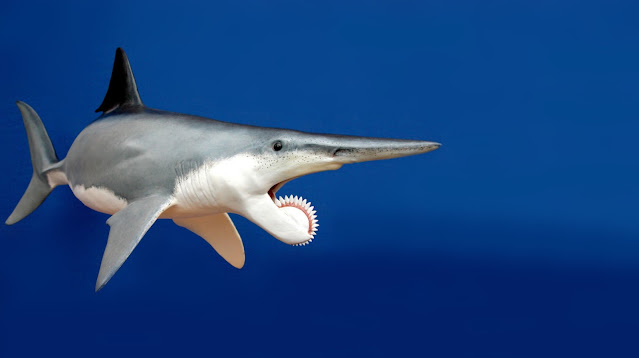In may come as no surprise that a 9am lecture isn’t a student’s favourite thing on a Friday morning but this time that didn’t matter one bit as it was going to be given by the STEVE BACKSHALL!
I have been looking forward to his lectures ever since it
was announced that he had joined Bangor university earlier in the year. His
first lecture didn’t disappoint as he explained about some of the incredible places
he has been, from rock climbing to inaccessible forests to diving into never
visited caves. This talk reminded me of the deadly 60 shows I used to watch as
a child and that there are still places in this world never visited and waiting
to be explored. This, his second talk was focused on sharks and the desperate need
to conserve and protect them.
Steve had just returned from a trip to the Cocos islands in
the Pacific Ocean off the coast of Costa Rica which is a shark conservation zone
which means sharks can’t be targeted here in anyway even by catch and release
fishing.
Some fascinating species:
Stethancanthus or ironing board shark is a small extinct shark with a rather peculiar spiked ‘shower head’ like thing on its back which was thought to be used to attach itself to larger animals and act like a modern day sucker fish.
This is the rather bizarre looking Helicoprion which grew to be 6 metres in length and has a rather peculiar ‘buzz-saw’ like mouth. The hardness of shark teeth means they fossilise easily and are well well represented in the fossil record resulting in the size of sharks like this one to be accurately estimated.
Greenland Sharks are mysterious fish that are the only sharks to be resident in the Arctic cycle. They live for an astonishing 400 years and are thought to not reach sexual maturity until around 100 years old so are at risk of extinction if overfished. In this photo you can also see a copepod attached to the eye which is thought to possibly be a symbiosis with it acting as a lure.
Did you know?
Around the nose and mouth sharks have hundreds of sensitive pores called the ampullae of lorenzini which is used to detect electrical signals in the water. However, when touched a shark enters tonic immobility where their eyes role back and they turn over. This is used by scientists to tag and access a smaller sharks stress free. However, orcas have also learnt about this and use it to immobilise sharks before eating them! Orcas have been observed to even hunt great whites; who would have thought that an apex predator like a great white shark could be prey to another species!
Footage below shows some amazing footage of a pod of orca hunting and eating a tiger shark!
Conservation
Sharks have been around for 400-500 million years but after all
that time they are now at danger of extinction and it is because of us.
Each year it is thought that around 250 million sharks are
taken from the seas and oceans; these are killed for food, medicine and accidentally
by long-line fishing. Sharks are also being badly impacted by increasing levels
of pollution.
Shark conservation zones such as the Cocos Islands could become extremely important refuges for shark species. But these areas aren’t enough if we are going to protect the future of many shark species. Education is needed into the negative impacts shark fishing has to attempt to reduce the demand as well as educating on how shark fins have no medical properties. More research is also needed into ways to reduce sharks from being accidently caught during long-line fishing. And perhaps there needs to be a cultural shift in how we perceive sharks as not just dangerous killing machines but as magnificent creatures.
Steve has the job many young naturalists dream of; travelling the world to see and film wildlife. The chances of getting a job like his however, is unlikely but you never know. This talk also was a real eye opener for me on the serious issues currently affecting sharks and have defiantly made me want to learn more and find out how I can help.
During the Q&A, Steve did
well to explain that there is so much to explore and to take any opportunities to
follow your dreams to do what you want to do and who knows anyone could be the next Steve Backshall.




Comments
Post a Comment